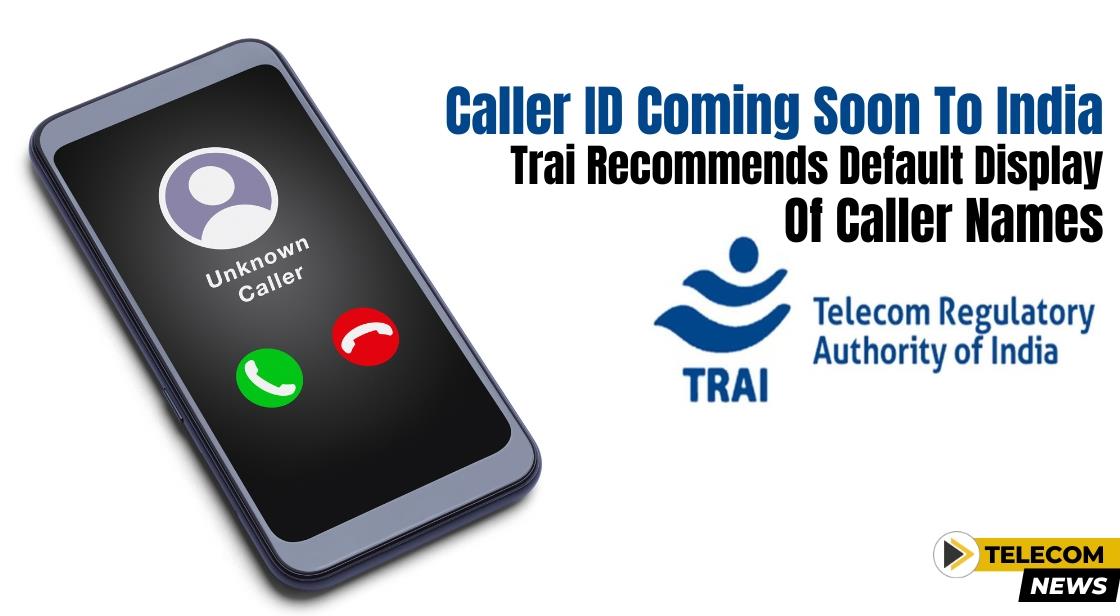Caller ID Coming Soon to India: Trai Recommends Default Display of Caller Names

News Synopsis
In a significant move, the Telecom Regulatory Authority of India (Trai) has released its final recommendations, proposing the introduction of caller identification (caller ID) as a default feature across domestic telecommunications networks. This comes nearly two years after the Department of Telecommunications (DoT) initially proposed the idea.
Trai's Recommendations: Default Caller ID as a Supplementary Service
Trai's final recommendations state that all telecom operators "should provide Calling Name Presentation (CNAP)" as a "supplementary service" to customers "upon their request." The regulatory body has outlined a technical model to roll out caller identification and has recommended that the government issue orders for all telcos to implement the service within a specified timeframe. The proposed CNAP model will display the name registered with a telecom operator when a call is received.
Timeline and Background:
-
The Department of Telecommunications proposed caller identification in March 2022.
-
Trai initiated a consultation paper for CNAP in November 2022.
-
A consultation took place in March last year, leading to the recent release of Trai's final recommendations.
Potential Impact and Competition:
Once launched, the default caller ID service is expected to compete with existing caller identification providers, such as Truecaller. Truecaller, with its significant user base of over 374 million, expressed confidence in its technology and AI capabilities, stating that it goes beyond basic number identification.
Industry Response and Commercial Considerations:
Telecom operators have not provided immediate statements on Trai's recommendations. The industry awaits clarity on how the feature will be rolled out nationwide and its alignment with the Digital Personal Data Protection (DPDP) Act, 2023, set to be introduced following the notification of DPDP rules later this year.
Truecaller's Perspective:
Truecaller, a prominent caller identification service, sees the new feature as potentially impacting its India user base, which forms a significant demographic. The company emphasizes that its technology offers more than basic number identification.
What is Digital Personal Data Protection (DPDP) Act, 2023?
The Digital Personal Data Protection (DPDP) Act, 2023 is a landmark legislation in India that aims to regulate the processing of digital personal data by organizations. It seeks to:
1. Protect the privacy of individuals: The Act empowers individuals with control over their personal data and grants them the right to access, rectify, and erase their data in certain situations.
2. Ensure responsible data processing by organizations: The Act outlines obligations for organizations collecting, storing, and processing personal data. These obligations include:
-
Obtaining consent from individuals before processing their data.
-
Implementing security measures to protect the data from unauthorized access, use, disclosure, or modification.
-
Complying with data minimization principles, meaning only collecting the data necessary for specific and legitimate purposes.
3. Establish a regulatory framework: The Act establishes a Data Protection Authority to oversee its implementation and address grievances.
4. Promote data localization: The Act encourages storing personal data of Indian citizens within the country. However, certain exemptions may apply.
5. Align with international standards: The DPDP Act draws inspiration from existing data protection regulations like the General Data Protection Regulation (GDPR) of the European Union.
Overall, the DPDP Act aims to create a balanced ecosystem where individuals have control over their personal data and organizations are held accountable for their data practices.
Here are some additional points to note:
-
The Act is not yet fully operational, as the DPDP rules, which will provide specific details on its implementation, are still under development.
-
The Act has been subject to some debate, with concerns raised regarding its potential impact on business and innovation.
If you are interested in learning more about the DPDP Act, you can refer to the official government website or consult with a legal professional.
You May Like









